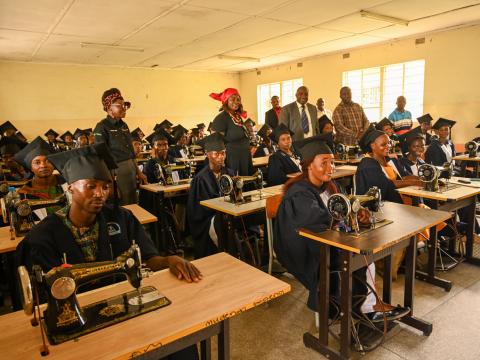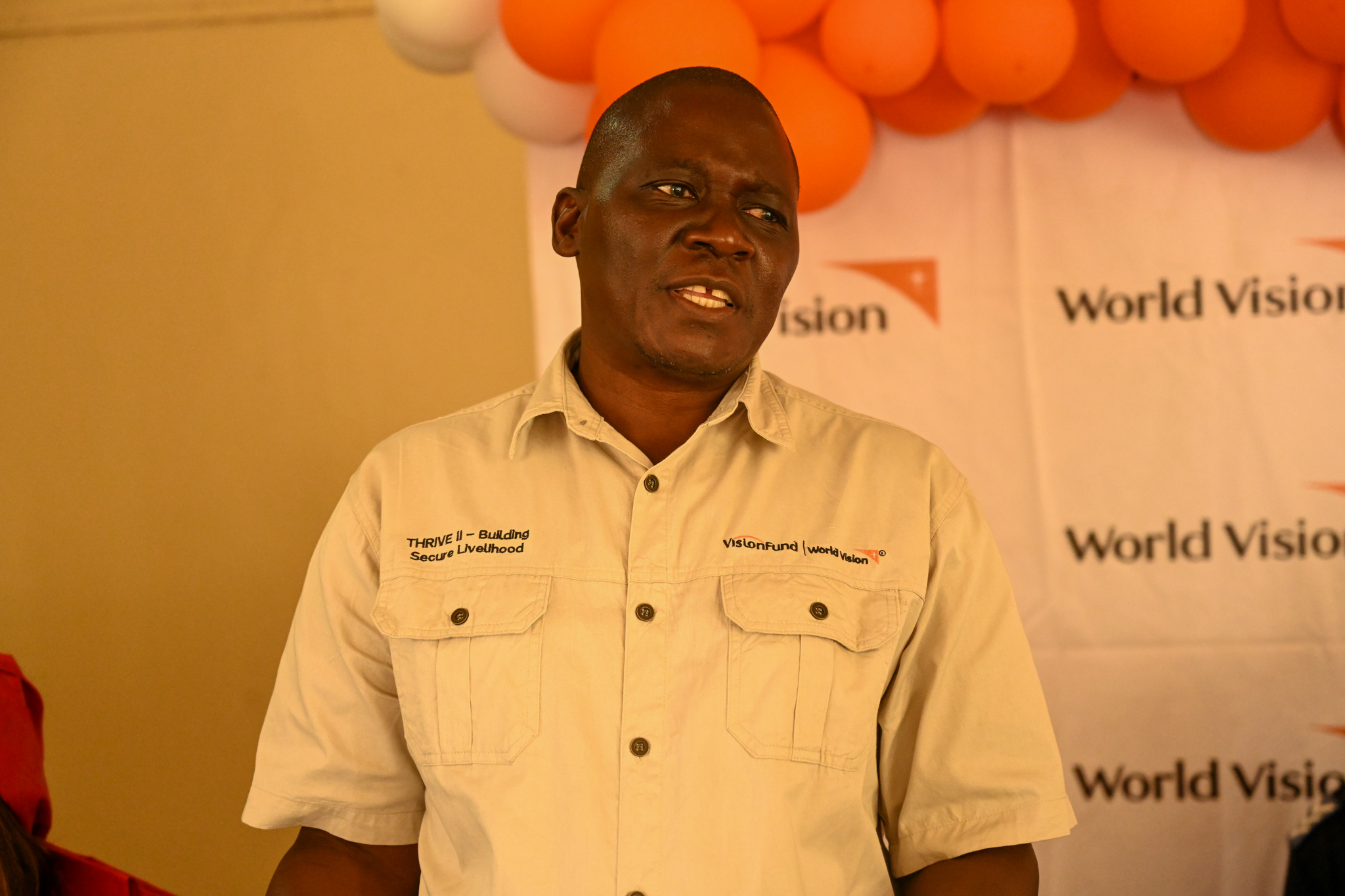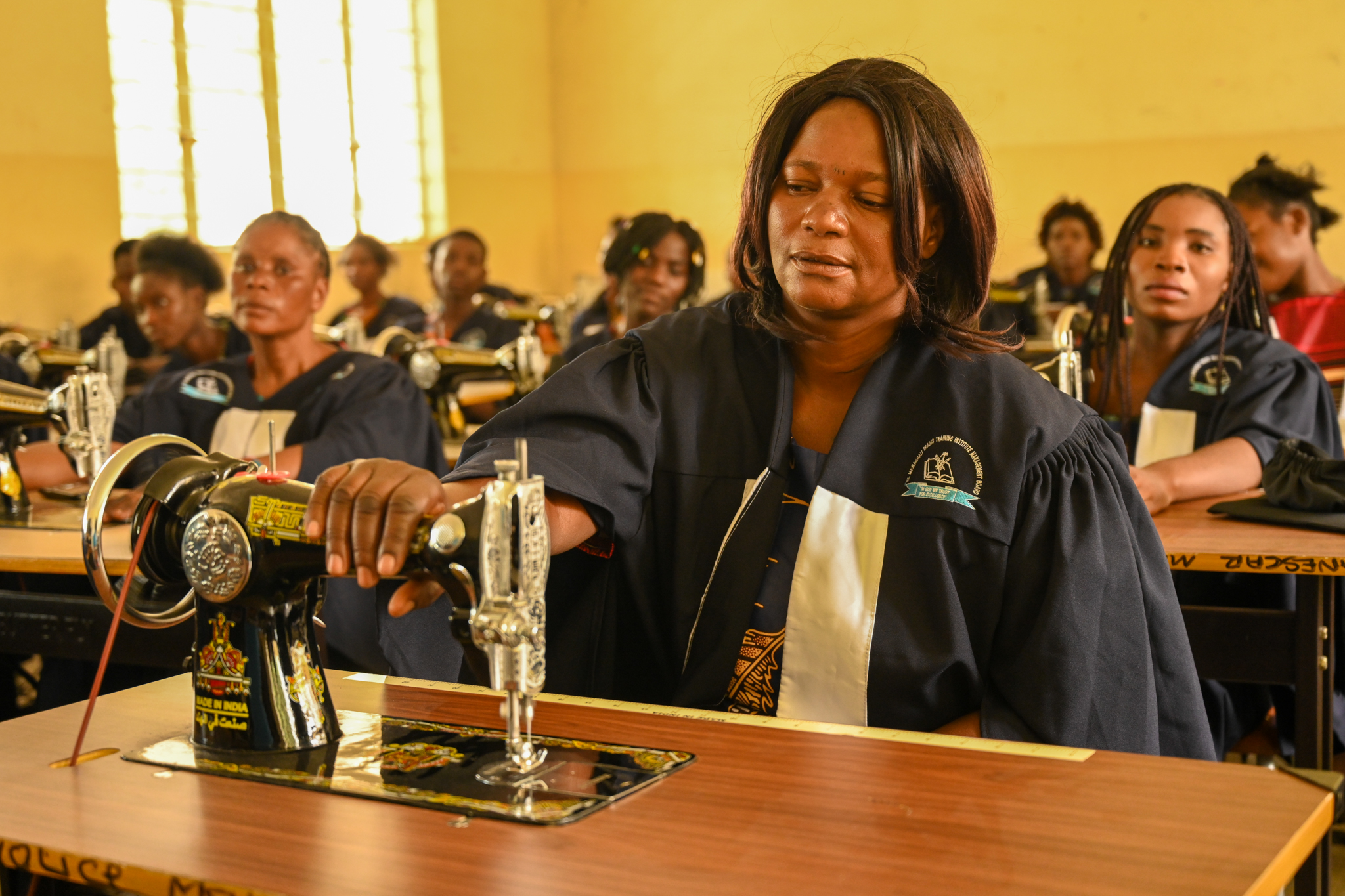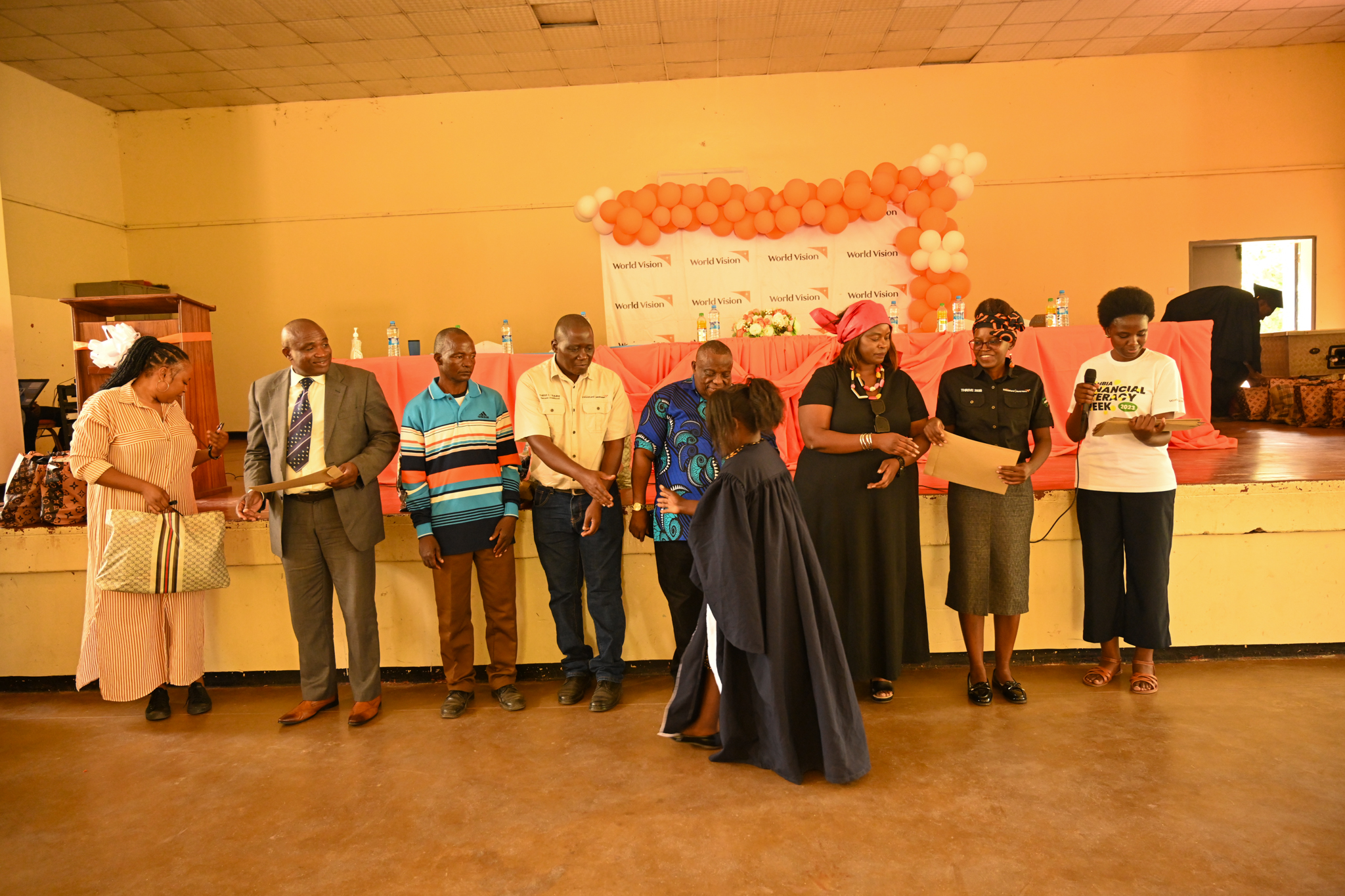Hope amid uncertainty: How Tailoring Skills Are restoring livelihoods after the El Nino drought

For years, many households in Namwala District struggled with financial insecurity, lacking opportunities to break the cycle of poverty worsened by the recent El Nino drought. With limited economic activities and skills, families faced hardships providing for their children’s education and daily needs. However, hope emerged through World Vision Zambia under the Transforming Household Resilience in Vulnerable Environments’ (THRIVE) Tailoring Enterprise Development Initiative, an effort designed to equip community members with essential skills for financial independence.
On February 7th, World Vision Zambia marked another milestone by hosting its second graduation ceremony at St. Mawaggali Trades Training Center in Choma District. This event celebrated 50 new graduates from the Muchila Area Program, bringing the total number of trained participants to 100. The initiative aligns with World Vision’s broader goal of empowering vulnerable households by 2025.

Speaking at the graduation, Michael Chiyombwe, Area Program Manager for Mbeza Muchila, emphasized the initiative's holistic approach.
“Empowerment goes beyond skills,” said Chiyombwe. “It includes financial literacy, entrepreneurship, and business management. We are committed to equipping participants with the knowledge and tools they need to manage their finances wisely and build thriving businesses.”
Namwala District Council Chairperson, Abel Moonga, expressed his appreciation for World Vision’s efforts:
“To World Vision Zambia and its partners, we extend our sincere gratitude. Your investment is not just changing lives; it is transforming communities and securing a brighter future. This initiative has strengthened the fashion and design value chain, providing sustainable solutions that empower vulnerable households, particularly women, youth, and people with disabilities.”

For many participants, the training has been life-changing, providing them with a pathway to financial independence. Melody Nambaya, one of the graduates, shared how the training reshaped her approach to saving and community support.
“My savings journey began in 2023 when I was trained as a community agent,” Melody explained. “After my training, I returned to share my knowledge, and five savings groups were formed within the community. Together, we decided to work alongside the Stay-in-School Committee to support underprivileged learners.”
Through these efforts, Melody’s savings group purchased 10 school uniforms for children in need. Now, with her tailoring skills, she plans to take this initiative further.

“Instead of buying uniforms, I will sew them myself to support even more children. World Vision has helped me lift myself out of poverty, and in turn, I want to help others.”
Another beneficiary, 22-year-old Christabel Masowe, reflected on her transformative journey.
“My grandmother encouraged me to join a savings group, but I was hesitant because I didn’t know where I would find the money to save,” Christabel shared. “With her support, I joined, and now, thanks to this training, I have acquired a skill that will last a lifetime.”
During the four-week training, Christabel wasted no time in applying her new skills.
“I started sewing dresses for people even before the training ended. Now, I plan to expand my business when I return home, and I will also have money to save. Thank you, World Vision, for helping me discover my talent,” she said with a smile on her face.
Through the Tailoring Enterprise Development Initiative, World Vision Zambia continues to empower individuals with sustainable skills, reinforcing financial independence and community transformation. As more participants graduate, the ripple effect of this initiative will be felt across generations, fostering economic growth and resilience in rural communities.